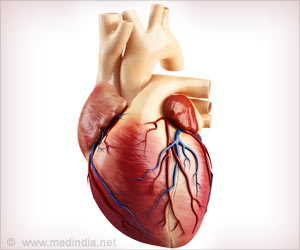Patients who had stents implanted utilizing the FiberNet Embolic Protection System, during carotid stenting with commercial stents, showed a low number of cardiac problems.
FiberNet Embolic Protection System: An embolic neuroprotection system can lower risk of strokes and cardiac events, says an Indian origin researcher.
Patients who had stents implanted utilizing the FiberNet Embolic Protection System, during carotid stenting with commercial stents, showed a low number of cardiac problems.Led by Subbarao Myla, MD, Medical Director CV Research and Vascular Intervention, Hoag Memorial Hospital, Newport Beach, Calif., the study focused on patients who were at high risk for CEA that were treated with the FiberNet Embolic Protection System during carotid artery stenting procedures.
The data was compiled into a registry that tracked 237 patients at 26 sites across the U.S.
Myla said that the system uses a unique filter design with low porosity.
"Its easy-to-use features combined with aspiration prior to retrieval lead to low event rates. The FiberNet system allows blood flow during the procedure, a fiber-based filter captures particles as small as 40 µm and the stent is delivered for placement using a standard coronary guide wire,” he said.
In the study, patients at high-risk for CEA were treated in a prospective, multi-center, non-randomized trial.
Advertisement
The EPIC study revealed very low stroke, MI and death rates using the FiberNet embolic protection system during carotid stenting.
Advertisement
Source-ANI
TAN/M













